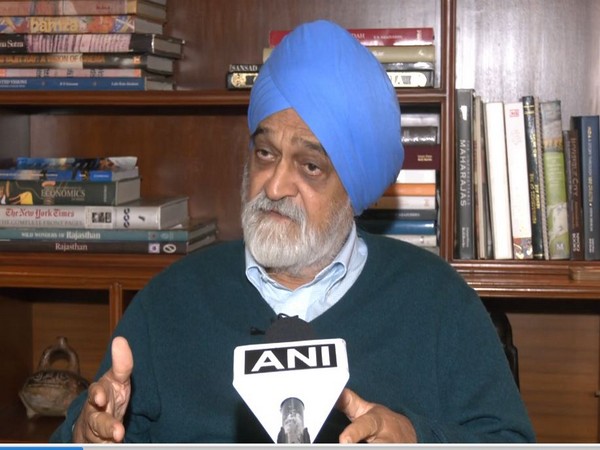Montek Ahluwalia Alarmed by India's Soaring Fiscal Deficit
Former Planning Commission Deputy Chairman Montek Singh Ahluwalia warns that India's high fiscal deficit, exceeding that of other developing countries, hampers private investments. He urges the government to establish a roadmap for reducing both central and state fiscal deficits to ensure robust economic growth and address politically motivated subsidies.

- Country:
- India
Montek Singh Ahluwalia, the former Deputy Chairman of India's Planning Commission, has expressed significant concern over the country's escalating fiscal deficit, which he claims is much higher than that of comparable developing nations. Ahluwalia stated that this fiscal imbalance is hindering private investment, an essential driver of economic growth.
In an interview with ANI, Ahluwalia emphasized the pressing necessity for the government to develop a systematic strategy to reduce the fiscal deficit of both central and state governments. He noted, "The finance minister has set a target of a 4.5% deficit for the upcoming year, but achieving a substantial reduction in the debt-to-GDP ratio, as previously planned, requires more severe fiscal adjustments."
The combined fiscal deficit of central and state governments is estimated to stand at nearly 8% of GDP, significantly surpassing the fiscal deficit benchmarks of other developing nations. Ahluwalia accentuated that if India aims for an 8% growth rate driven by private investment, reducing the fiscal deficit is imperative.
Ahluwalia further highlighted the practices of state governments, which often disguise their fiscal deficits through indirect borrowing via public sector enterprises, thereby exacerbating the fiscal strain. He called for an evaluation of state spending, specifically targeting politically motivated freebies and subsidies. While acknowledging the necessity of certain expenditures, he suggested reallocating funds from less critical sectors to ones with higher economic productivity.
He was particularly critical of the fertilizer subsidy, suggesting it benefits the fertilizer industry more than farmers and negatively impacts soil health due to excessive use. On the economic growth front, while the current rate hovers around 6.5%, Ahluwalia indicated India's need to increase its growth rate to 8-10% to achieve its "Viksit Bharat" vision by 2047.
He urged the government to implement strategies to realize these ambitious growth targets, underscoring the importance of fiscal discipline and strategic economic planning in ensuring India's transition from a middle-income to an upper-income nation.
(With inputs from agencies.)
ALSO READ
Iraq Hosts Landmark Arab Guarantees Conference: Central Bank, ILO, and Regional Entities Focus on Credit Guarantees for Economic Growth
Arunachal Pradesh Advocates GST Simplification for Economic Growth
El Salvador Lifts Metals Mining Ban: Economic Growth vs. Environmental Concerns
Strengthening Economic Growth Through Tax Reforms and Debt Management Solutions
Boosting Employment: PM Modi's Job Fairs Propel Economic Growth










